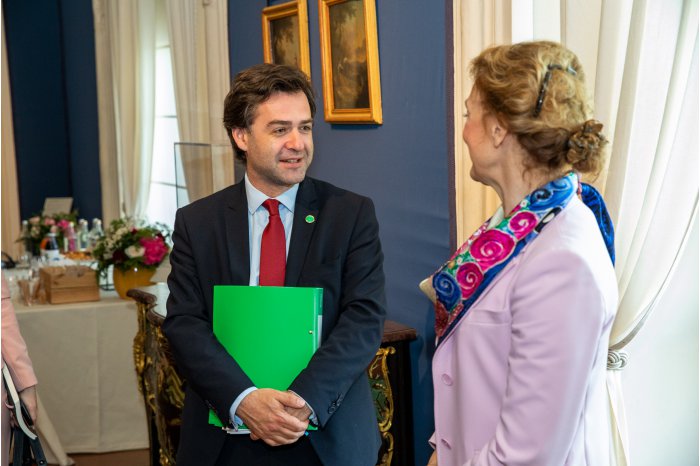Moldovan foreign affairs minister meets Council of Europe's Secretary General
14:12 | 20.05.2022 Category: Official
Chisinau, 20 May /MOLDPRES/ - Deputy Prime Minister, Foreign Affairs and European Integration Minister Nicu Popescu has had a meeting with Council of Europe (CoE) Secretary General Marija Pejčinović Burić, on the sidelines of the 132nd Session of CoE’s Committee of Ministers.
According to the Foreign Affairs and European Integration Ministry’s (MAEIE) press service, the two officials reviewed the developments occurred since the last meetings in Chisinau and New York. The sides appreciated the ascendant character of the cooperation, expressed by the implementation of the Council of Europe’s action plan for Moldova for 2021-2024, as well as the constant support of the Organization in the process of backing the democratic reforms in Moldova.
„I appreciated, on this occasion, the activity of the high-level working group of the Council of Europe, set up with the support of the Secretary General, a group which assists our national authorities in the process of justice sector’s reform,’’ Minister Nicu Popescu said.
In the context of the war in Ukraine, Deputy PM Nicu Popescu thanked the official for the interest and support of the Council of Europe’s structures in the Moldovan authorities’ efforts to manage the crisis of refugees, with the fields of intervention already elaborated based on the national institutions’ needs. In particular, Moldova will be benefit from assistance through trainings in combating the trafficking of human beings, treatment of unaccompanied children, identification of vulnerable categories among the refugees, training of social employees and psychologists, as well as the children’s education and linguistic integration.
A separate subject of the discussions, which stays a central concern of the Moldovan diplomacy in the dialogue with CoE, was the situation of the human rights in Moldova’s Transnistrian region and the problems related to the work of those eight Latin-script schools, as well as the compulsory character of the enforcement of the rulings by the European Court of Human Rights by the states responsible of infringements.

